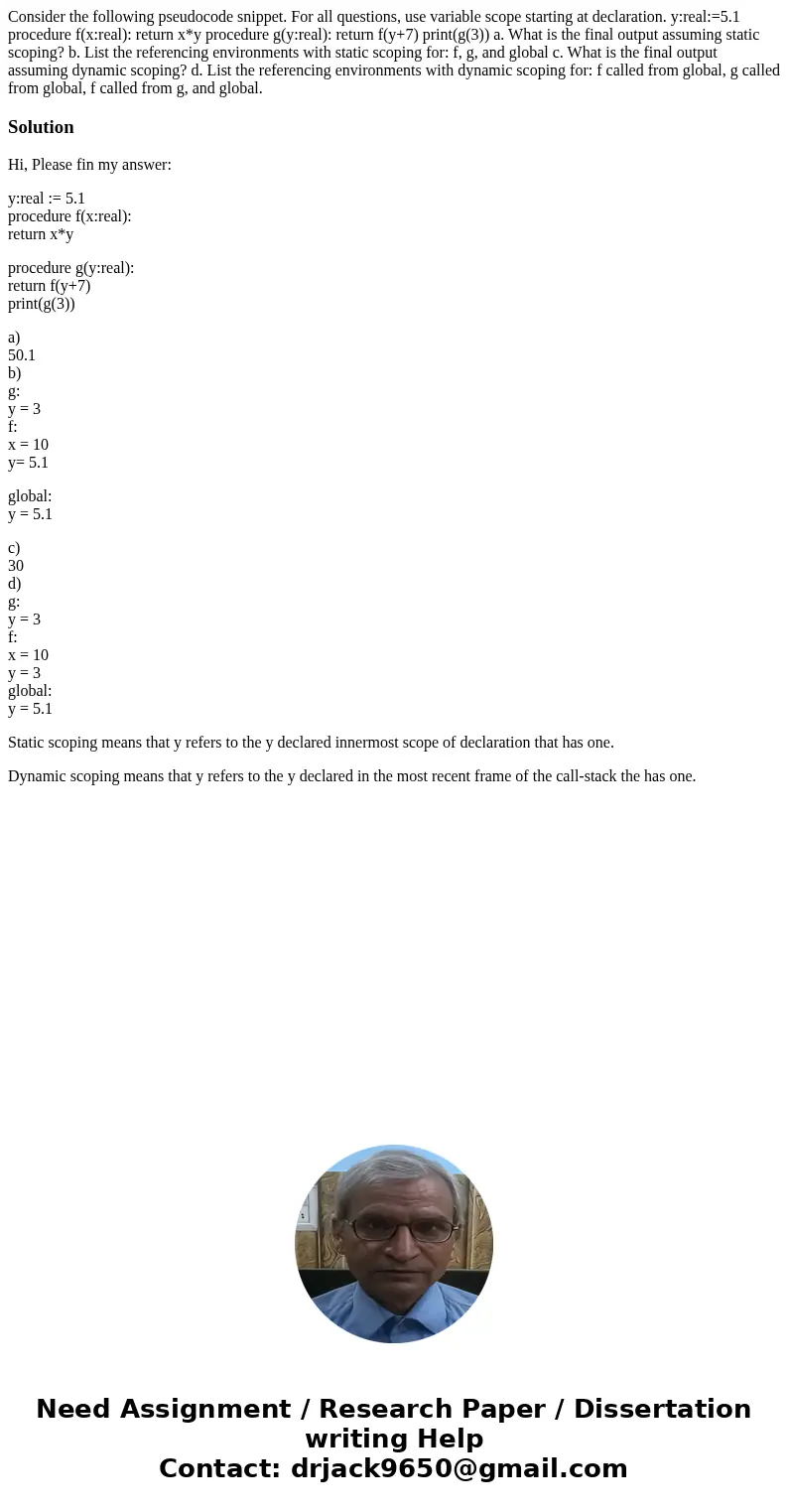Consider the following pseudocode snippet For all questions
Consider the following pseudocode snippet. For all questions, use variable scope starting at declaration. y:real:=5.1 procedure f(x:real): return x*y procedure g(y:real): return f(y+7) print(g(3)) a. What is the final output assuming static scoping? b. List the referencing environments with static scoping for: f, g, and global c. What is the final output assuming dynamic scoping? d. List the referencing environments with dynamic scoping for: f called from global, g called from global, f called from g, and global.
Solution
Hi, Please fin my answer:
y:real := 5.1
procedure f(x:real):
return x*y
procedure g(y:real):
return f(y+7)
print(g(3))
a)
50.1
b)
g:
y = 3
f:
x = 10
y= 5.1
global:
y = 5.1
c)
30
d)
g:
y = 3
f:
x = 10
y = 3
global:
y = 5.1
Static scoping means that y refers to the y declared innermost scope of declaration that has one.
Dynamic scoping means that y refers to the y declared in the most recent frame of the call-stack the has one.

 Homework Sourse
Homework Sourse